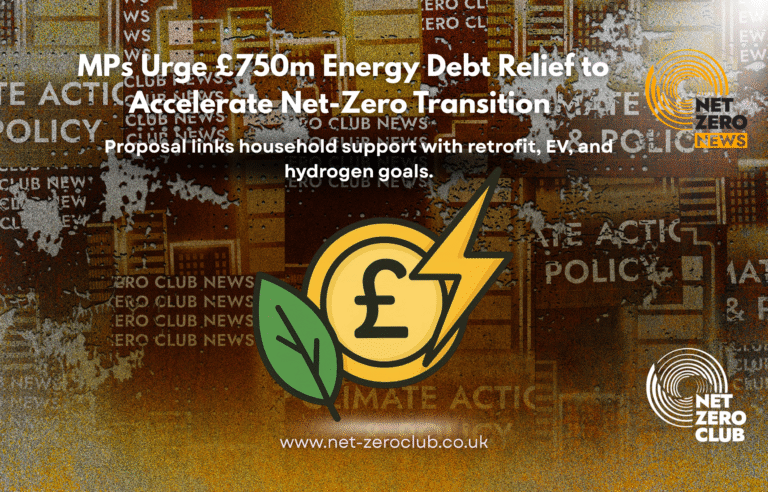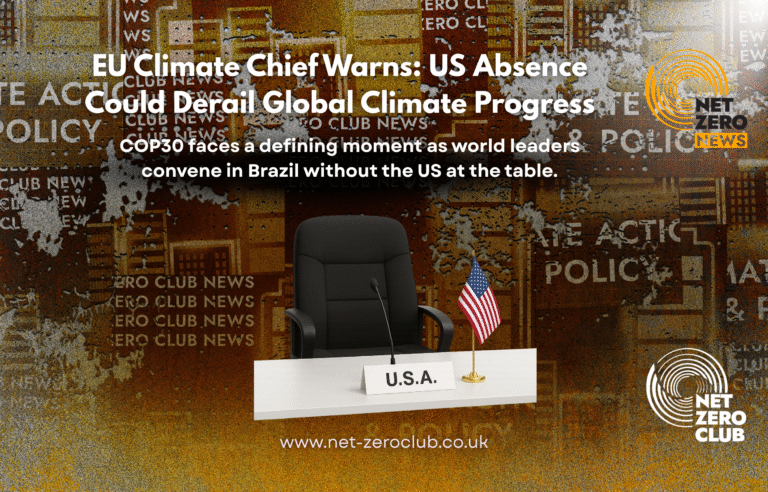EU Overcomes Climate Challenges to Secure COP30 Deal

Hello, Champions of Net Zero!
As the world gathers to confront the pressing issue of climate change, the recent COP30 summit in Belém, Brazil, has proven both challenging and revealing for the European Union (EU). This year, the EU entered the conference with high hopes of addressing its climate shortcomings and pushing for significant global action. However, the reality of geopolitical tensions and internal divisions proved to be formidable obstacles.
The EU’s Ambitious Yet Challenging Agenda
The European Union arrived at the COP30 summit determined to tackle its climate challenges head-on. After a year marked by intense negotiations and infighting over new pollution-reduction targets, the bloc aimed to advocate for stronger global commitments to combat climate change. However, the absence of traditional allies, particularly the United States, significantly hampered its efforts.
EU Climate Commissioner Wopke Hoekstra expressed the sentiment of many when he stated, “We’re living through complicated geopolitical times. So there is intrinsic value, no matter how difficult, to seek to come together.” Yet, despite their aspirations, the EU found itself grappling with a coalition of powerful nations, including China, India, and Saudi Arabia, that collectively resisted stronger climate action.
Geopolitical Realities and the EU’s Position
In Belém, the EU faced a stark geopolitical reality. The absence of the United States, which had previously partnered with the EU to push for more robust climate initiatives, left the bloc vulnerable. The EU struggled to rally support against the combined forces of emerging economies that were less inclined to commit to aggressive climate targets. This lack of unity among global players was evident as the summit progressed.
Hoekstra acknowledged the challenges, stating, “We’re not going to hide the fact we would have preferred to have more. And yet the world is what it is, the conference is what it is, and we do think this on balance is a step in the right direction.” While the EU achieved some concessions, including reaffirmation of commitments to transition away from fossil fuels, the overall outcome fell short of its initial ambitions.
A Narrow Escape from Crisis
The negotiations were fraught with tension, almost reaching a breaking point. In the early hours of the final day, EU negotiators were poised to veto the proposed agreement due to its inadequate language on emissions reductions and financing for climate initiatives. The Brazilian presidency of COP30 made last-minute adjustments to appease the EU and other holdout nations, enabling the conference to proceed without a major fallout.
However, the adjustments were merely a temporary fix. The EU had aimed to emerge from the summit with a clear and unequivocal signal against fossil fuels, but the reality proved different. The bloc struggled to forge a coalition capable of countering the Saudi-led opposition, a situation exacerbated by internal divisions that had plagued the EU throughout the year.
Lingering Divisions Within the EU
The EU’s internal divisions were apparent as the summit unfolded. On multiple occasions, countries within the bloc failed to present a united front, particularly during discussions aimed at amplifying climate ambitions. Just days before the summit concluded, the EU was notably absent from a significant coalition of 82 nations, led by Colombia, advocating for a roadmap to phase out fossil fuels.
While many EU member states supported the initiative, dissent from nations like Italy and Poland prevented the bloc from fully endorsing the call. This lack of cohesion ultimately weakened the EU’s negotiating power, as other countries took notice of the internal strife.
Furthermore, a letter sent by a coalition of 29 countries to the Brazilian COP30 presidency highlighted concerns about the draft proposal’s failure to reference the roadmap for phasing out fossil fuels. Although the majority of EU nations supported the letter, dissent from ten member states, including Hungary and Greece, underscored the ongoing fractures within the bloc.
Emerging from COP30: A Step Forward or Backward?
As the dust settles on COP30, the EU contemplates its position in the global climate arena. The summit highlighted not only the EU’s ambitions but also its vulnerabilities in a rapidly changing geopolitical landscape. Developed nations, including the EU, secured changes to a financing proposal aimed at supporting poorer countries in preparing for climate disasters. However, the financing will come later than developing nations had hoped, drawing from sources beyond the budgets of wealthier countries.
The EU’s failure to build a robust coalition against fossil fuel dependency has left many questioning its future role in climate diplomacy. The changes in the global order, as noted by German Climate Minister Carsten Schneider, indicate a pressing need for the EU to adapt to new realities. “Something has changed, and that has become very apparent here,” he remarked.
Throughout the negotiations, European diplomats expressed frustration over the tactics employed by major oil-producing nations, particularly Saudi Arabia. The absence of the US emboldened these nations, allowing them to derail discussions aimed at curbing fossil fuel production and emissions. The EU’s once solid alliances with small island states and other nations advocating for climate action appeared to weaken, leaving the bloc feeling isolated.
Reflections and Future Directions
In reflecting on COP30, it is clear that the EU has much to ponder regarding its role in future climate negotiations. The bloc underestimated the influence of emerging economies and overestimated the unity of its allies. The mixed results from Belém underscore the necessity for the EU to recalibrate its approach to climate diplomacy, seeking new alliances and strengthening internal cohesion.
As the world continues to grapple with the urgent threats posed by climate change, the EU must remain committed to its climate goals while navigating the complexities of a shifting geopolitical landscape. The lessons learned from COP30 will undoubtedly shape the EU’s strategies moving forward, as it seeks to reclaim its position as a leader in global climate action.
In conclusion, while COP30 did not yield the results the EU had hoped for, it provided valuable insights into the current climate diplomacy landscape. The path ahead may be fraught with challenges, but the EU’s continued commitment to addressing climate change remains a beacon of hope in these trying times.
This article, structured using HTML
tags, aims to engage the readers of the ‘Net Zero News Network’ by providing a comprehensive overview of the EU’s experience at COP30, highlighting both the challenges faced and the lessons learned. The language has been tailored to reflect UK British English standards while maintaining a reader-friendly tone throughout.

 Got net-zero news, project updates, or product launches to share?
Got net-zero news, project updates, or product launches to share? 



